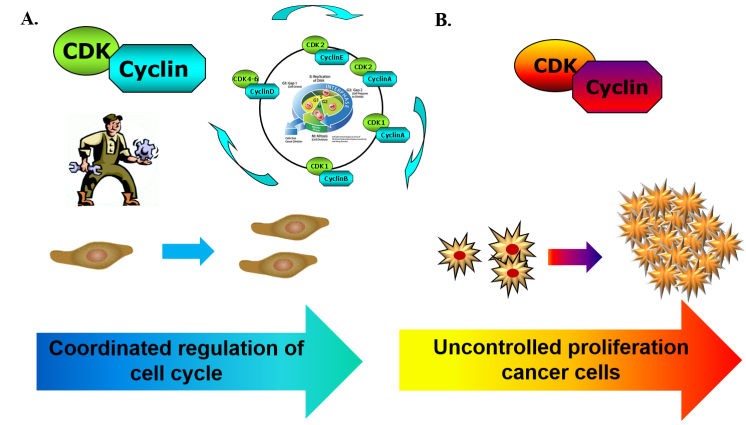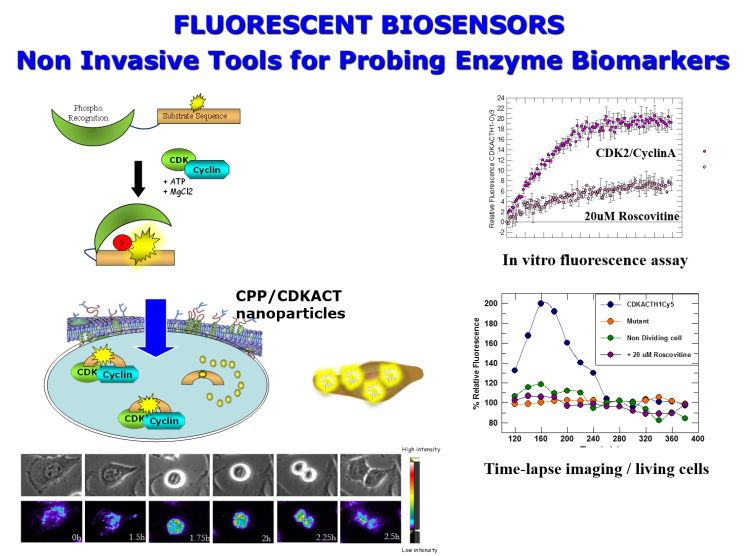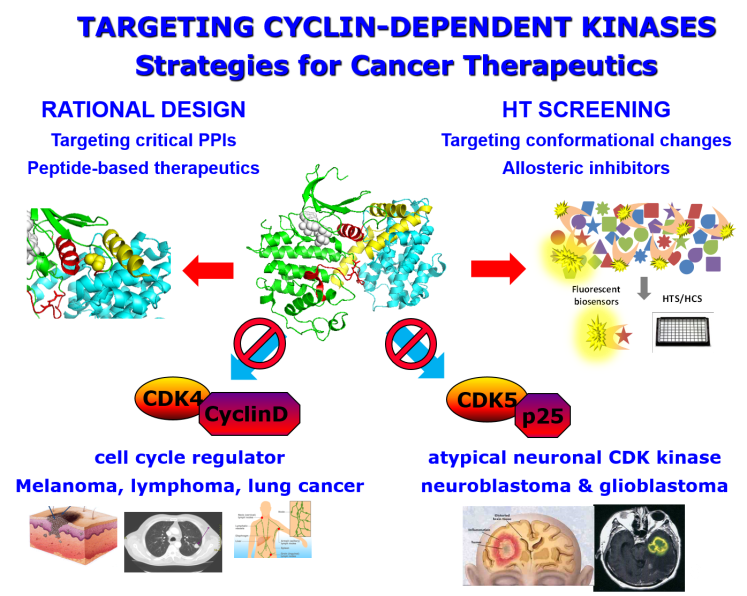Thematics
INTRODUCTION – Cyclin-dependent Kinases & Cancer
One of the major hallmarks of cancer concerns deregulation of the mechanisms underlying cell proliferation, associated with genetic amplification, overexpression or hyperactivation of cell cycle regulators. In particular Cyclin-dependent kinases (CDK/cyclins) participate in a wide variety of essential biological processes including transcription, neuronal differentiation and metabolism, aside from the role they were first identified for in cell cycle progression. These kinases are hyperactivated in most human cancers, thereby contributing to sustain uncontrolled proliferation, and constitute attractive pharmacological targets for anticancer therapeutics. However there are currently no means of reporting on the activity of these targets directly in tumours. Moreover the only inhibitors of these kinases which are currently in clinical trials target the ATP-binding pocket

FLUORESCENT BIOSENSORS for probing and imaging cyclin-dependent kinases
In order to propose sensitive and adapted strategies for probing CDK/Cyclins, we have developed an original technology based on a toolbox of peptide and protein-based fluorescent biosensors which offers a straightforward means of sensing alterations in kinase levels, activity or conformation in vitro, in living cells and in vivo, when introduced into cells in an appropriate fashion, thanks to synthetic probes whose spectral properties are sensitive to environmental changes.

These biosensors constitute sensitive tools for reporting on alterations associated with hyperactivation or inhibitrion of CDK/Cyclin kinases in real time in vitro, in living cells and in vivo. They offer a powerful technology for diagnostic purposes, to monitor response to therapeutics and to develop pharmacological screening strategies.
http://www.ncbi.nlm.nih.gov/pubmed/24357625 (Biotechnology Journal Special Issue – Feb 2014)
http://www.ncbi.nlm.nih.gov/pubmed/23376184 (PMBTS Volume « Fluorescent Biosensors » 2013)
TARGETING Cyclin-dependent kinases
In order to propose novel inhibitors of cyclin-dependent kinases for anticancer therapeutics we are developing two approaches :
- Rational design of peptide and peptidomimetic inhibitors targeting protein/protein interfaces which are essential for CDK/Cyclin kinase function
- High throughput screening of chemical compound libraries for small molecules that target protein/protein interfaces or for allosteric inhibitors that perturb kinase function through conformational interference, thanks to specific fluorescent biosensors
